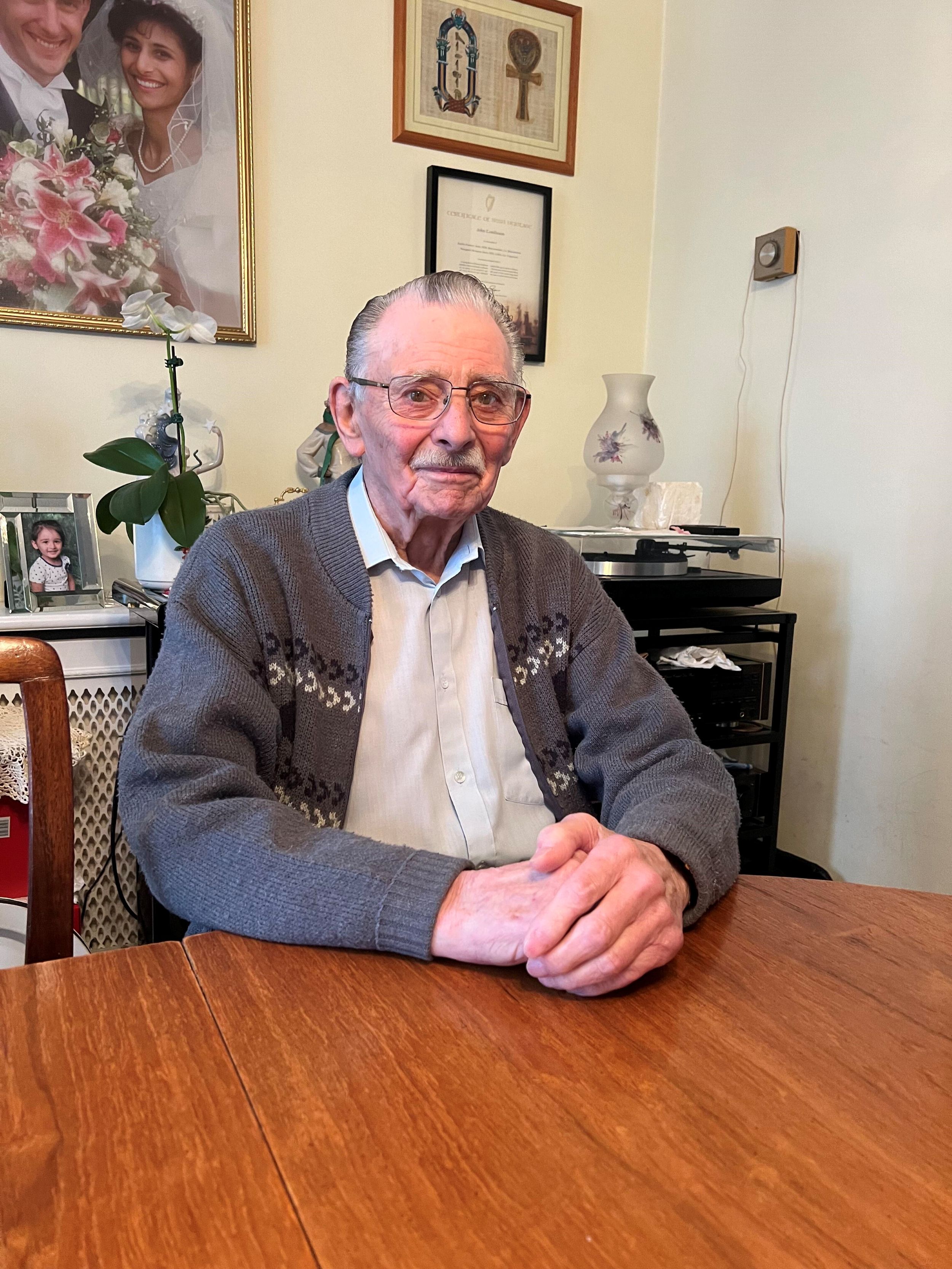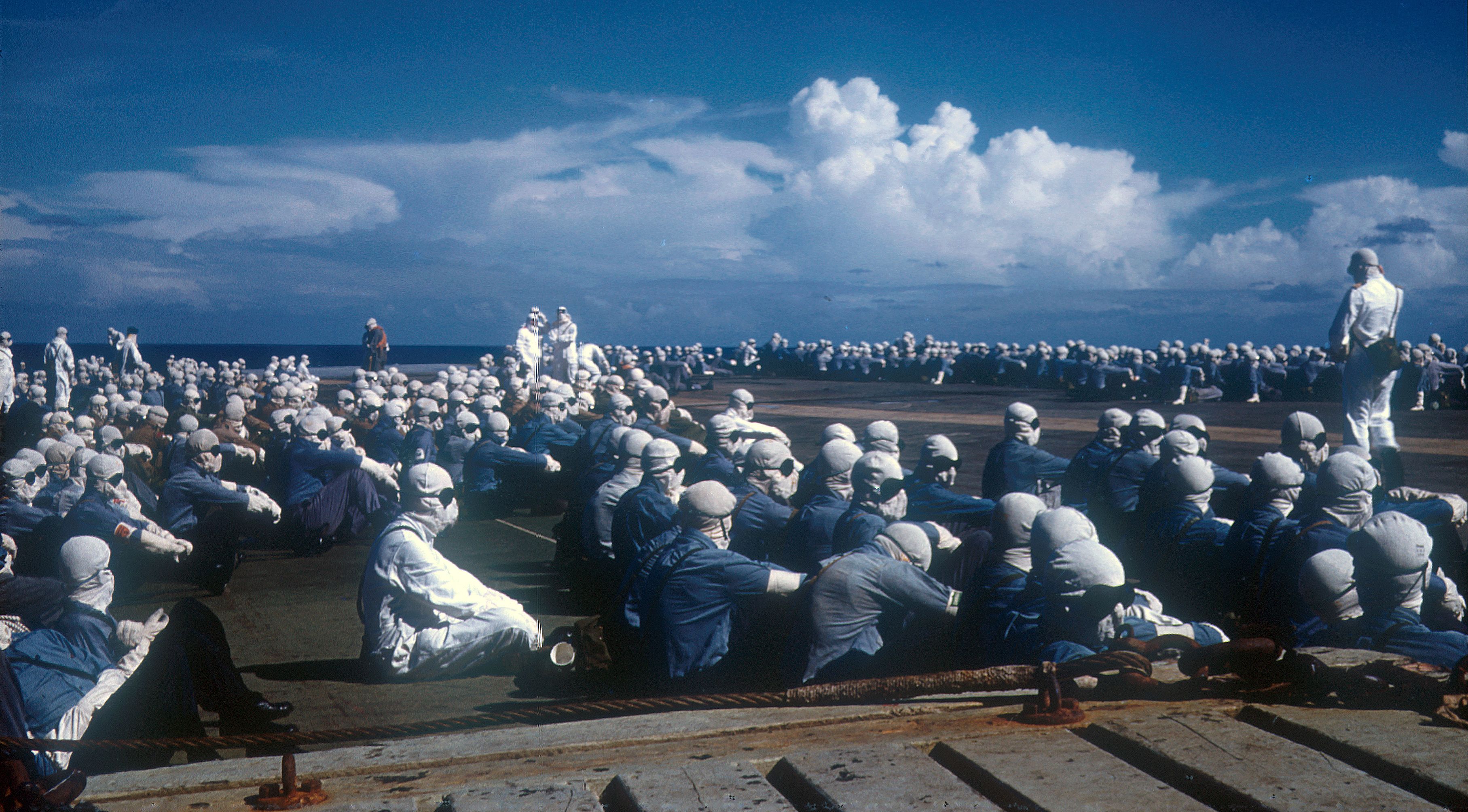
John Brian Tomlinson was born in 1936 in Chilwell, Nottinghamshire. He joined the Royal Engineers in 1954, rising to corporal at the age of 18. In 1957 he was deployed to Maralinga, South Australia, for Operation Antler. Operation Antler was a series of three atomic tests in which British scientists studied the impacts of the blast and fallout on operational capabilities and equipment. Despite the secrecy and lack of information, Tomlinson and his fellow soldiers performed groundwork including sandbagging protective shelters for scientific personnel. On one occasion, Tomlinson was ordered to drive a vehicle as close as possible to the site of a detonation, and only turn around when the Geiger counter reached a maximum threshold. Tomlinson was later assigned to conflicts in Kenya, Aden and Somalia. In the early 1960s he met his future wife, Meredith, at the military hospital in Catterick, North Yorkshire. They have four children.
Interview extracts
Description
Brian Tomlinson describes his first job as a sign painter, where the strong fumes from thinners and paints made him feel sick and unable to eat. He hints at the irony of these circumstances, since his service as a royal engineer would later expose him to other toxic contaminants at Operation Antler, a nuclear test series at Maralinga, South Australia. Tomlinson’s testimony demonstrates why signing up as a regular to the armed forces would have been so attractive for someone from his background, particularly considering the noxious work he would have been doing as a civilian.
This is a short extract from an in-depth interview. Brian Tomlinson was recorded for the Oral History of British Nuclear Test Veterans project in 2024. The interviewer was Christopher R Hill. This project was run in partnership with National Life Stories and the full interview can be accessed at the British Library.
Transcript
I couldn’t eat.
And that was your first job, wasn’t it, the signage?
First job. And I used to, as soon as I walked in in the morning, and you could smell the fumes from the thinners and the paints and all that sort of thing, at the end of the day I’d feel really, really sick. And my mother said, you’ve got to eat. And I said, I can’t eat. And I could taste, I could taste the, like paraffin and thinners and all that that we used to use. And that’s what made me join the forces really, I said I’ve got to get out and do something sensible and not just stick in this place. I couldn’t… because I said to my dad, I said, how on earth did you manage to stay in this place all these years? He said, because of you lot.
Ah.
I said, I can’t do that. And that’s what made me join, really, to get out and be in the open air, outside, and learn something. Which I did, I learned a hell of a lot when I was in the Engineers. And I was quite, quite proud of that.
[ends at 0:01:03]
Description
Brian Tomlinson wishes that he had more information about the jobs he was doing at Maralinga. While at Maralinga, he was tasked with the particularly dangerous job of walking towards one of the bomb craters until a Geiger counter he was holding reached a certain agreed upon level.
This is a short extract from an in-depth interview. Brian Tomlinson was recorded for the Oral History of British Nuclear Test Veterans project in 2024. The interviewer was Christopher R Hill. The project was run in partnership with National Life Stories and the full interview can be accessed at the British Library.
Transcript
It was an experience that I hadn’t, well, I’ll never, hopefully, never see again really, because it was something new, Britain didn’t really know what the outcome was going to be on the testing of some of these devices, so it was a kind of a, bit of a challenge. I only wish that we had more information about what we had to do, because we weren’t. Someone would say, right, you dig a hole, four foot square, and you dig a hole four foot square, and what’s it for? Oh, some instrument. That’s all we know. And this is what you used to get, just stupid answers. You’re not here to ask questions, you do what we told you to do, and so you can get no further, no one’d commit themselves. The scientists, they didn’t tell you anything. In fact, they hardly ever spoke to you. So, you were doing things by what the army said, or what was really down to whoever was in charge of our lot, to tell us, go and do this, go and do that, and that’s what it happened to be. Every day was the same. You used to get the weekend off, or Sunday, sometimes Saturday, it just depends how they felt. But most of the time, free time, there was nothing to do, I mean they only had the cinema, you couldn’t go there every day, they didn’t want to run a truck all the way down and then run it back for just to, see there, you’d go once or twice a week. But they had a big swimming pool there. But, thinking back, it does come to you now and again, you think back, back of your mind something’s irritating you, and it’s there until you try and get rid of it.
[ends at 0:01:54]


